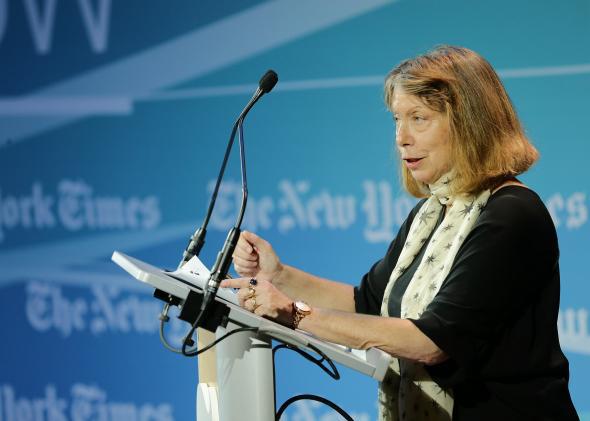The latest installment of a continuing series in which American events are described using the tropes and tone normally employed by the American media to describe events in other countries.
NEW YORK, United States—Outsiders often find it strange that an institution with no official legal standing is frequently referred to as the “paper of record.” Once considered a regional media outlet for the city whose name it still anachronistically bears, the New York Times has long been a national force, though it is primarily consumed by the economic elites who cluster in the coastal metropolitan areas of this economically stratified country. The newspaper enjoys a position of influence in the media and political life of America unmatched by its foreign equivalents.
To describe the New York Times as an American version of papers like Le Monde or the People’s Daily does not do it justice. Its well-off readership relies on the paper for everything from learning about important foreign and domestic political events to announcing the lavish weddings of their children.
The Times is not without its critics. Opposition groups claim it is far too sympathetic to President Barack Obama and his ruling center-left Democratic Party. Attacking its most influential writers is something of a cottage industry for the nation’s satirists and critics. But for both opponents and devoted followers, the paper is an object of fascination, the subject of ethnographic studies and even popular films.
So observers were shocked on Wednesday when Executive Editor Jill Abramson was ousted from her position by the paper’s owner Arthur Sulzberger Jr. Abramson had reportedly long clashed with the secretive and eccentric Sulzberger family, which have owned the paper since the late 19th century.
Reports have since emerged that Abramson may have been paid less than her male predecessor, and that some in the paper’s leadership may have resented her aggressive style. While the laws of this rapidly modernizing country outlaw gender discrimination in compliance with international norms, inequalities rooted in centuries-old patriarchal practices still persist, even in elite institutions, and those who challenge these unwritten rules can face severe backlash.
Abramson’s successor Dean Baquet, the first editor of the paper who is not a member of the country’s economically dominant ethnic group, could face daunting challenges in the years ahead. Though more successful than most of its competitors, the New York Times has struggled to adapt to the new ways that Americans are consuming news.
The United States is catching up with countries like South Korea and Finland in Internet use. With more readers moving online, the growing popularity of microblogging sites and the easy availability of online news resources—including previously unavailable foreign media and outlets controlled by the opposition—have undermined the paper’s ironclad control of the media landscape. The Sulzbergers themselves have seen their control over the prized family property chipped away by a Mexican tycoon.
The Times’ future may be uncertain, but at least for now, Americans will still be reading about it in the New York Times.
